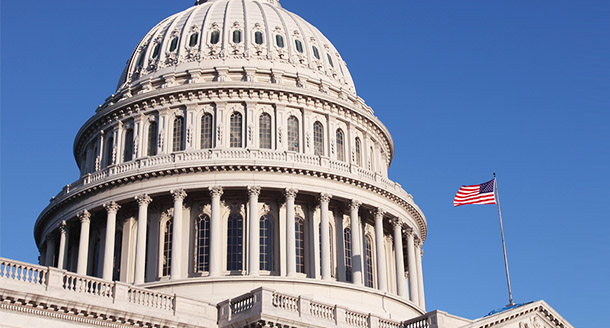National Brain Tumor Society (NBTS) is disappointed by the National Cancer Institute’s (NCI) decision to not invite a renewal of funding proposal from the Pediatric Brain Tumor Consortium (PBTC). As advocates for the brain tumor community, we’re urging the NCI to sustain the critical function and work of the PBTC for our most vulnerable patients.
As the only NCI-funded initiative solely focused on early-phase clinical trials for children and young adults with brain tumors, the PBTC has played a pivotal role in advancing pediatric brain tumor treatment since its inception in 1999.
Before the PBTC, there was not a coordinated, systematic approach to prioritizing and evaluating the most promising new treatments for these devastating cancers — the leading cause of childhood cancer morbidity and death. Through a rigorous and competitive selection process, the PBTC brought together leading experts in pediatric neuro-oncology to conduct critical clinical and translational research for this population.
Closure of the PBTC weakens the fragile but essential ecosystem of pediatric brain tumor research and drug development unless an even stronger, durable, focused network is established.
Despite this setback, NBTS remains steadfastly committed to preserving access to innovative clinical trials for children with brain tumors and to ensuring the momentum that PBTC helped generate is not lost.
What Happened
On August 20, NBTS learned that the PBTC would not be invited to apply for renewed funding in 2026. After confirming the news with researchers and consortium members, we sought clarity from the NCI and engaged with advocacy partners. Simultaneously, we reached out to additional leaders in pediatric brain tumor research to understand the potential impact of this decision.
What We’ve Learned
The NCI recently conducted a review of PBTC, and determined that the group did not warrant renewed funding as a discreet program. The rationale provided to us from the NCI is that the function of conducting pediatric brain tumor clinical trials could be more efficiently achieved under the umbrella of a different pediatric cancer trials network called Pediatric Early-Phase Clinical Trials Network (PEP-CTN). The NCI provided several technical reasons for the belief that PEP-CTN was a better venue for this work, all related to efficiency and the streamlining of process as well as overlap with other NCI-led and philanthropically-funded initiatives. Pediatric brain tumor researchers we spoke to who are familiar with the program did acknowledge that the PBTC is not without flaws, but that improvements would be feasible. These researchers determined that the existing flaws in the program do not supersede the experience and neuro-oncology focus the program provides.
Our Position
After conversations with NCI leadership and pediatric brain tumor experts, NBTS respectfully disagrees with the decision to cease funding for the PBTC.
While we recognize the strengths of PEP-CTN, and in particular its relationship to the larger NCI-funded Children’s Oncology Group, we strongly believe both programs are necessary to advance the outcomes and address the critical unmet needs of children with brain tumors.
PBTC provides deep specialization, a track record of convening the field’s top experts across all relevant disciplines, and a dedicated infrastructure to prioritize and evaluate new treatments for pediatric CNS tumors—a particularly complex and rapidly evolving field.
Pediatric brain tumors receive less private investment than other childhood cancers and remain one of the most scientifically and clinically challenging diseases to treat. This field cannot afford to lose vital capacity, expertise, or momentum just as the field of neuro-oncology is starting to realize the potential to develop highly-targeted treatments, advance cellular and other immunotherapies, and evaluate medical devices for children with aggressive brain tumors.
What We’re Doing About It
NBTS is urging the NCI leadership to reconsider and re-engage in dialogue about modernizing and preserving the PBTC. If funding is not continued, we urge NCI to ensure that critical elements of the PBTC are sustained through PEP-CTN. Specifically, we request:
- Continuity of Care: Ensure that no child currently enrolled in a PBTC study loses access to treatment, preserving potentially life-saving care and the integrity of ongoing clinical trials.
- Trial Transition: Facilitate the transition of current PBTC trials to the PEP-CTN, wherever feasible, with priority given to those approaching full accrual to minimize disruption and maximize scientific value.
- Funding Support: Allocate meaningful PBTC-designated funds to ensure the continuation of essential activities within the PEP-CTN, including:
- Support for pediatric brain tumor trials within the PEP-CTN framework.
- Continuation of the PBTC’s multi-disciplinary scientific forum, supported with adequate effort coverage and travel funding.
- Sustained support for research staff at member institutions to ensure ongoing high-quality trial operations and patient care.
- Expert Oversight: Establish a dedicated Pediatric Neuro-Oncology Leader and Steering Committee within the PEP-CTN to:
- Guide the development of future trials.
- Implement timely and expert peer review processes for evaluating new research concepts.
- Protect and optimize PBTC data in the transition and ensure that PEP-CTN has a brain tumor data plan.
- Advocate Engagement: Create a representative advisory council comprised of pediatric brain tumor advocates to:
- Provide input on priorities.
- Ensure community voices are heard throughout the transition.
- Transparency: Publish a clear and public transition plan by December 31, 2025, outlining how PBTC activities, personnel, and trials will be supported and integrated into PEP-CTN.
For advocates, researchers, clinicians, parents, families, and patients, our commitment is simple: We will match the community’s disappointment with determination. We will insist on the focus, resources, and accountability that children with brain tumors—and the clinicians who care for them—need now.
Now, we’re asking you to join us in calling on the NCI to reverse its decision or, short of that, to otherwise ensure that there remains adequate funding and clinical trial opportunities for children and young adults with the deadliest form of pediatric cancer.




